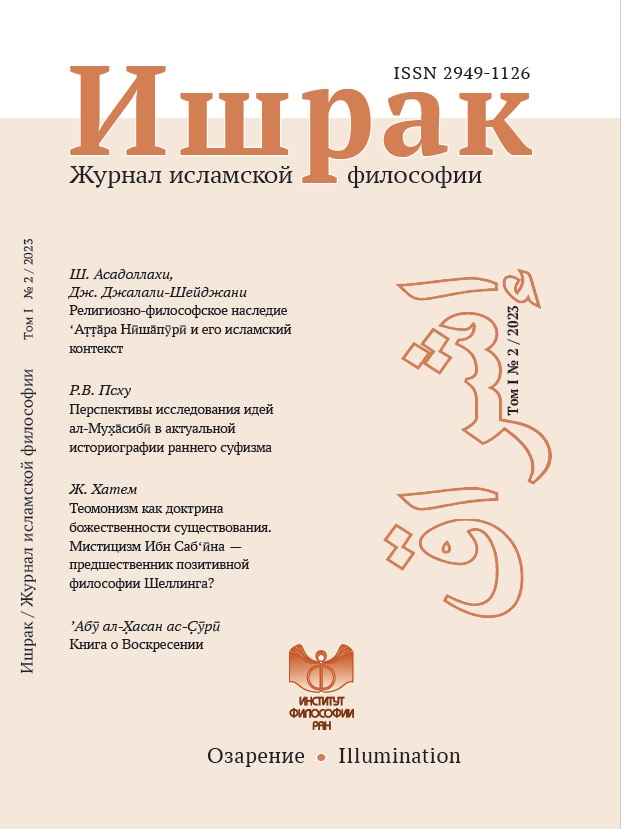Neokalam and Modern Philosophy of Science: Alliance or Confrontation?
A Review of: Altaie, M.B. God, Nature and Cause: Essays on Islam and Science. Dubai: Kalam Research & Media, 2016, 242 pp.
Keywords:
Kalam, Neokalam, Metaphysics, Natural Philosophy, Philosophy of Physics, Space, Time, Quantum PhysicsAbstract
The article discusses in detail the monograph of the Iraqi-born physicist Mohammed Basil Altaie, dedicated to the Neokalamic interpretation of the modern physical theory of the macro- and microworld. Altaie, starting from the five statements of the classical Kalam (about the temporality of the world, the discreteness of natural structures, recreation and variability of the world, indeterminism and the integration of space and time), develops his own concept of “Islamic” philosophy of science. Proceeding from the thesis about the significant similarity of Kalamic ideas about nature with the postulates of the modern theory of relativity and quantum mechanics, Altaiе believes that the revisited daqīq al-kalām (philosophy of nature) is able to provide us with an integral and not conflicting with modern physics fundamental picture
of the world. According to Altaiе, his theory makes it possible to combine the strict principle of tawḥ īd with the concept of the laws of nature due to the assumption that Allah, through the implementation of the act of recreation, determines which effects give rise to specific parameters, while maintaining the general regular order of reproduction of physical phenomena. The author of the review focuses on the natural-philosophical speculations of Altaiе. The work describes in detail the reconstructions of the ontology of Kalam, corrected by Altaiе and applied by him to solving problems generated by quantum physics. The causal connections that make it possible to talk about the laws of nature are explained differently in the two systems: real physical causality is allowed in macrosystems, while a recreational interpretation of quantum mechanics is illustrated by microsystems. Altaiе refers to the concepts of jawhar (“abstract substance” or “atom”) and ʻaraḍ (“accident”): they are accidents, interpreted as quantum states of particles, that are constantly subjected to recreation, which makes it possible to explain the indeterminism of quantum physics and thereby solve the problem of measurement. The discreteness of space and time is explained by Altaie through the concepts of place and moment of time (ān), which directly correlate with modern ideas about the four-dimensionality of the physical world. The author of the review puts forward a number of critical remarks and arguments designed to demonstrate that, despite all the merits and contextual novelty of Altaie’s Neokalam, his views remain debatable in the context of modern philosophy of science.


